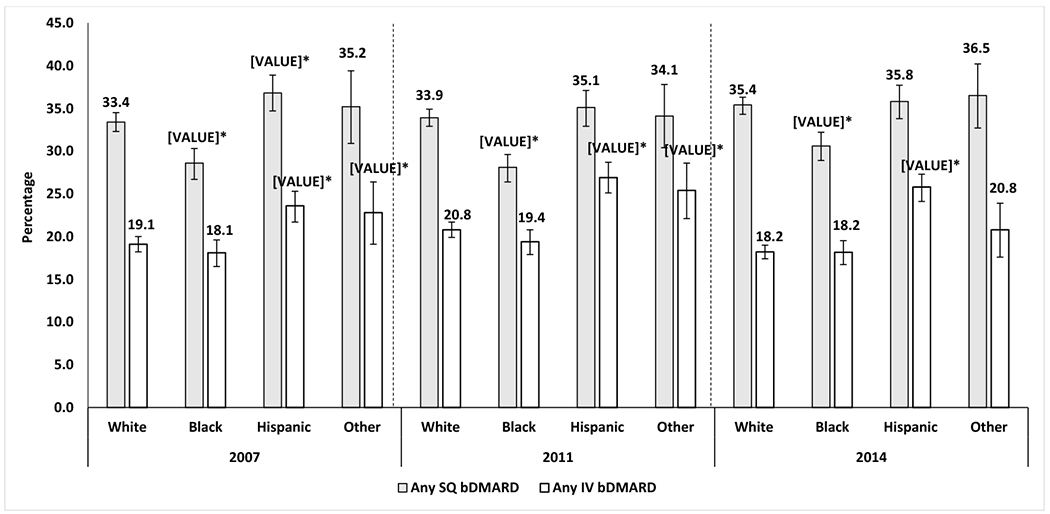Figure 3:

Differences in long-term opioid use by racial/ethnic groups among SSDI beneficiaries with RA who were disabled and younger than 65 years.
Percentage of all patients among each racial/ethnic group using long-term opioids, by year
Adjusted for age, sex, United States region of the United States, heart failure, chronic obstructive pulmonary disease, area deprivation index, fibromyalgia, diabetes, diabetes complications, mental illnesses, transient ischemic attack, stroke or myocardial infarction, and peripheral vascular disease.
¥Long-term opioid use was defined as a 30-day opioid prescription refilled for ≥ 2 additional months or a 90-day supply in a single prescription.
Mental illness was defined as: anxiety, depression, bipolar disorder, multiple personality disorder or schizophrenia.
*Statistically significant vs. the percentage for White patients.
